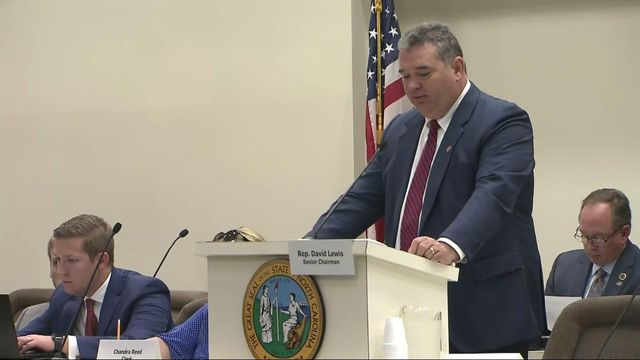Redistricting fights fuel reform talk
For the first time in years, North Carolina lawmakers had a serious discussion Thursday about reforming the way they draw voting districts for congressional and state legislative seats. The meeting coincided with a pre-trial hearing Thursday morning in the latest lawsuit challenging the constitutionality of current maps.
Posted — UpdatedThe meeting coincided with a pre-trial hearing Thursday morning in the latest lawsuit challenging the constitutionality of maps drawn using lawmakers' current method, which allows for the use of political data and election results to construct districts with a partisan lean.
In September, a three-judge panel ruled that the state's legislative districts, last revised in 2017 after another court ruling, were so heavily gerrymandered to favor one party or the other that they violated voters' rights under the state constitution. Plaintiffs are now challenging the congressional map under the same logic, and the panel, made up of the same three judges, is widely expected to require lawmakers to redraw those districts as well before the end of the year.
In 2011, just after Republicans won the majority, the House approved a redistricting reform bill, but the Senate chose not to consider it. Democrats held power for decades before that but never made changes to the process either, despite calls for reform from then-minority Republicans.
The House committee considered three reform proposals on Thursday: House Bill 69, House Bill 140 and House Bill 648.
Only one of the bills, House Bill 140, would include a constitutional amendment to go before voters in an upcoming election. Rep. Chuck McGrady, R-Henderson, one of the bill's primary sponsors, said that's both an advantage, because future lawmakers wouldn't be able to overturn it, and a liability, because it might be difficult to get voters to approve it.
The other two bills would be new laws, not constitutional amendments. That would make them easier to enact and to update or amend as needed, but they also would be subject to repeal by lawmakers after the next election.
Each of the three bills takes a slightly different approach to the process. All three would set up some sort of advisory commission to oversee map drawing, but they differ on how large that board should be, who should appoint its members and how much of a role they should play in the actual construction of the maps.
The three bills also differ on how much input legislators should have in the final product. House Bill 69 and House Bill 140 would limit lawmakers' ability to change the maps until they had failed once or twice. House Bill 648, authored by Rep. Harry Warren, R-Rowan, would allow the maps to be amended like any other bill.
Warren said his bill preserves the voice of the public by preserving legislative power.
"We have constitutional authority and a right and a responsibility as elected people in the House," said Warren. "For us to relegate our responsibility when it comes to redistricting to either legislative services or to a commission, I think, is a dereliction of our duty."
Lawmakers on the House Redistricting committee spent more than an hour questioning bill sponsors and committee staff about how each proposal would work. Public comment wasn't taken, but committee members agreed it would be an essential component of any reform process.
Chairman Rep. David Lewis, R-Harnett, pledged that future meetings on the issue of reform would include public input.
"We’re trying to find a system that works a little bit better than it has in the past," Lewis said. "It’s a bit too premature right now to say I think we can vote on this bill by the end of the next month, but I do hope we can come up with a bill that makes sense."
Another topic the committee seemed to agree on is the importance of recognizing how technology has changed what is known about voters and how much of that information should be used in redistricting.
While some of the bills banned the use of political performance in drawing districts, McGrady said they may not go far enough in the era of "big data."
"There’s a lot of things that are not political that can be used in a political fashion. We’ve gotten much more sophisticated with it," he cautioned. "I do think that’s something that’s going to have to be addressed in whatever the bill that goes forward."
Related Topics
• Credits
Copyright 2024 by Capitol Broadcasting Company. All rights reserved. This material may not be published, broadcast, rewritten or redistributed.






